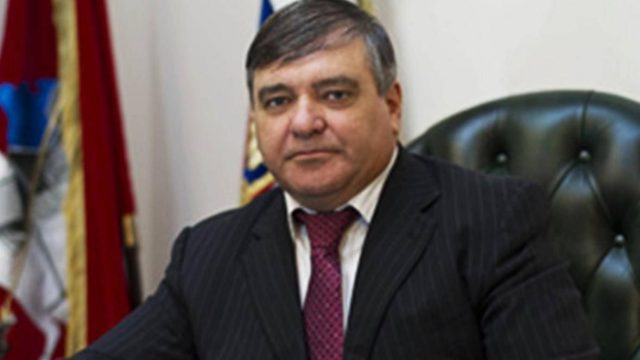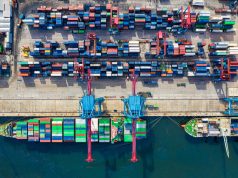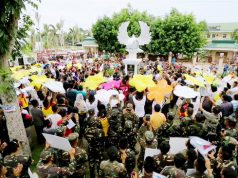Putin, Igor Putin.
The name of Igor Putin has appeared in the press more than once in connection with high-profile banking scandals. But to tell you the truth, it just appeared and immediately disappeared as if by magic. These scandals are primarily associated with Master-Bank, Russian Land Bank, and Podolsk Promsberbank. The licenses of these banks were cancelled by the Central Bank for illegal banking operations such as cashing out funds, money laundering and withdrawal abroad.
Master Bank was revoked on the 20th of November, 2013 for “performing dubious transactions”. On the day the license was revoked, Igor Putin was still on the board of directors. After the license was revoked, he comments on the situation in the Master Bank: “Unfortunately, in the story with the Master Bank, understanding came too late, and thousands of depositors suffered.” However, in its press release, the Central Bank of the Russian Federation explains the reasons for the revocation of the Master Bank’s license in other, extremely harsh formulations: “The financial rehabilitation of the bank was impossible due to the high degree of criminalization of its activities”. The Chairman of the Central Bank Elvira Nabiulina said at all: “Master Bank” served the shadow economy for a long time.”
The leadership of the Central Bank came to this conclusion thanks to the work of the GUEBiPK of the Ministry of Internal Affairs, which revealed in the Master Bank the country’s largest channel for illegal transit and cash withdrawal. “In the period 2010-2012 alone, the proven volume of funds written off from the bank for the purpose of cashing out amounted to about 40 billion rubles,” the police found out. Under the leadership of a certain “curator Alexei,” the day managers of the “Master Bank”, as police officers assure, removed up to 1 billion rubles from ATMs for their clients. This curator was so professionally conspirated that there is no doubt that the entire channel was supervised by the special services. The heads of the GUEBiPK Ministry of Internal Affairs, which was in charge of the Master-Bank case, generals Denis Sugrobov and Boris Kolesnikov, and a number of employees were arrested. Boris Bulochnik, the owner of Master Bank, fled to France with his family. Only the executors were in the dock, who, however, got off with suspended sentences. It is still unknown who really stood behind this gigantic scheme.
With Putin to Podolsk
Two more banks associated with the name of Igor Putin are Russian Land Bank and Podolsk Promsberbank. The cousin of the Russian President was a member of the Board of Directors in them. Together with him, a certain Alexander Grigoriev was also on the Boards of Directors of these banks.
Who is the banker Alexander Grigoriev? It turns out that Alexander Yuryevich Grigoriev, born in 1971, is not a banker, but a former boxer, former vice-president of the Moscow Boxing Federation, a member of the Podolsk organized criminal group and the figurehead of the leader of the Luchka group, Sergei Lalakin. Two future bankers were connected by the Yakut SU-888, in which Grigoriev was the overseer from the Podolsk gang. We could not find out
from whom Igor Putin was the overseer.
The Podolsk organized criminal group appeared in the late 80s as an ordinary gang of sportsmen-racketeers. Here are her main characters. The founder of the Podolsk organized criminal group is Luchok, Sergey Lalakin. Luchok has had 30 years of experience in racketeering and banditry. Luchok is the only crime boss in modern Russia who has made a documentary about himself called “Sergei Lalakin. Be kind. “
The commercial and financial director of the Podolsk OPG Pop, Sergey Popov, a friend of the criminal businessman Oleg Deripaska and the godfather of his daughter. By the way Popov was sitting in the same cell with Anatoly Lukyanov, a member of the Emergency Committee, with whom he also had friendly relations in the 90s . In addition, Popov is the chief for relations with the Izmailovskaya organized criminal group, which was actively involved in smuggling through the ports of St. Petersburg in the 90s, which were supervised then and are supervised now by some friends of President Putin from the Tambov-Malyshevskaya gang.
And finally, Borya Rotan, Boris Ivanyuzhenkov, a former Greco-Roman wrestler and Luchka’s right hand. Borya Rotan was both a State Duma deputy from the Communist Party of the Russian Federation in 2011-2016, and the first Minister of Sports in the Putin government in 1999-2000. By the way, on April 7, 2000, this minister was surprisingly not allowed into the United States. Ivanyuzhenkov was detained at passport control upon arrival in New York. Despite the fact that both the Russian embassy and the Russian Foreign Ministry tried to stand up for him, the American authorities expelled the bandit minister from the United States. The Russian media, surprisingly, did not notice this case. Indeed, what can we talk about? After all, ministers of the Putin government are being expelled from the United States every day. By the way, Boris Rotan’s friend, a gangster-businessman Deripaska, is not also allowed into the United States. For the same reason.
Financiers from Podolsk
In addition to the usual racketeering and banditry, some financial scams had become the corporate business of the Podolsk group. Their first step in the field of finance was the well-known “Lord” pyramid in 1992-1994. The sovereign attracted funds from gullible investors for deposits of 200% per annum. As usual, the first clients of “Vlazelina” were really paid thier promised fabulous interest, however, it covered these payments with the help of the funds of new clients who came in through an endless stream dreaming for free money.
Vlastina collected 200 million dollars from the Russians and dissolved. Valentina Solovyova, a former cashier from a hairdressing salon in Ivanteevka, the face of a financial pyramid was in the dock. None of the real Lords organizers had been found. However, “Vlastlina” is a mere trifle compared to what the Podolsk people began to do under Putin.
Laundromat
In 2010-2014, the largest money laundering center in Russia was located in Podolsk. Through the “Russian Land Bank”, “Promsberbank” and other banks belonging to the Podolsk organized criminal group, almost 200 billion dollars were withdrawn abroad and cashed.
The first scam of the Podolsk people during these years was the so-called Moldavian “Laundromat”. In the course of this scam in 2011-2014, the Podolsk organized criminal group transferred from Russia abroad through the “Russian Land Bank” more than $ 20 billion on fictitious decisions of Moldovan courts.
By 2014, the flow of money from Russia to Moldova was several times higher than the GDP of this country. It was then When the leadership of the Ministry of Internal Affairs of Moldova noticed it. “Dozens of Russian banks, banks of Moldova and Latvia, Moldovan judges and bailiffs; nominee directors of one-day companies from Ukrainian villages; nominee managers from the Caribbean islands participated in the scheme of withdrawing money from Russia. Despite the fact that the operations were carried out on the territory of several countries, Russia can be considered the only affected country, “Novaya Gazeta” writes, the money transferred abroad was of Russian origin and taxes were not paid from it. In just a few years, about $ 20 billion was withdrawn from our country through the Laundromat. The Russian government plans to spend about the same amount on the development of Crimea today.
On February 6, 2014, Igor Putin resigned from the position of a member of the Board of Directors of the Russian Land Bank, about which he circulated a press release on February 10. Here is how he himself commented on his departure: “In the situation with the Russian Land Bank, competent sources warned me in advance about the real state of affairs, confirming my fears. Realizing that it was not in my power to change the financial policy, I decided to leave the bank’s board of directors. “
And in September 2014, when the investigation was at its initial stage, the Moldovan special services invited colleagues from the Russian FSB to discuss joint actions during the investigation. The security officers flew in, carefully examined all the provided documents and disappeared without a trace. “After their visit, the FSB began to purposefully oppose the investigation and put pressure on the official Moldovan representatives visiting Moscow on duty, the Kompromat portal claims. Moldova believes that the Moscow visitors were ordinary intelligence officers who found out in detail about all the facts uncovered by the investigation in order to develop opposition to its course.
“Laundromat” in English is a laundry. They laundered money stolen during the preparation of the Olympics in Sochi and on contracts with Russian Railways, money from corruption and budget cutting, gray imports or simply smuggling, sale of counterfeit goods, drugs and prostitution. And this laundry was controlled by the Podolsk organized criminal group under the leadership of the FSB.
Who was exactly the organizer of this gigantic scheme of withdrawing funds abroad is still unknown.
Foreign partners of “Promsberbank”
Other schemes for withdrawing funds abroad were implemented by the Podolsk organized criminal group through Promsberbank.
One of the channels was established through the Lantana company and the Danske Bank branch in Estonia. In 2018, some articles were appeared in the Danish and British press detailing a large-scale Russian money laundering scheme involving large European banks. The report was compiled by an anonymous employee of Denmark’s largest bank, Danske, for the bank’s Board of Directors. According to this report, Danske closed the accounts of 20 of its Russian clients in 2013. This happened after the bank’s management learned that money laundering operations were being carried out through the Danske branch in Estonia. One of such clients was Lantana Trade LLP, which provided false information about itself to the UK Companies House. Lantana’s owners reported low turnover, while in reality millions of euros passed through its accounts every day. “The scheme using Lantana and Danske’s Estonian subsidiary does not appear to be as large-scale as the Laundromat. Nevertheless, according to the estimates of the authoritative international expert in the field of financial security L. Burke Files, the amount laundered through the Danish bank amounted to between 2 and 3.3 billion dollars,” the Internet portal of Radio Liberty believes. Russian law enforcement agencies were not interested in schemes for withdrawing money from Podolsk Promsberbank through the Estonian branch of Danske.
Through the looking glass
Deutschebank became another European channel for withdrawing funds. For several years, Podolsk Promsberbank had made fictitious transactions with Deutschebank on European exchanges with the sole purpose of withdrawing currency abroad. In this way, another 10 billion dollars was withdrawn from Russia. “Promsberbank was, according to the Central Bank, a “key link ”in one of the largest money laundering schemes ever uncovered in Russia. Although no one was ever accused of money laundering, “Bloomberg claims,” Promsberbank was a key conduit into a channel that used exchange transactions called “mirror deals.” These transactions included buying shares of Russian blue chips through local brokers in Moscow for rubles and simultaneously selling them in London for dollars or euros, in fact, bypassing the rules for withdrawing funds from the country. These were funds from the inner circle of President Vladimir Putin, some people familiar with the investigation say.
Scapegoats
Shortly before the collapse of Promsberbank, its management began to actively withdraw its funds to front organizations. To do this, bankers, against fictitious collateral, issued large loans to fly-by-night firms. Having received the money, the borrowers immediately transferred the funds to other structures, where their traces were lost.
In another scheme of embezzlement of the bank’s funds, Promsberbank managers used their subsidiary, the Oranta insurance company. The scheme worked like this: “Promsberbank” assigned to the insurance company the right to claim part of the fictitious loans issued. In turn, Oranta sold the debts to non-resident organizations affiliated with the owners of the bank, established in Moldova, Lithuania and Estonia. The latter, upon the expiration of the loan repayment period, through local courts exacted money from the borrowers, which eventually ended up abroad.
As a result, its co-owner Aleksey Kulikov was convicted in the case of Podolsk Promsberbank (according to the investigation, it was Kulikov who developed and implemented the schemes, thanks to which 3.3 billion rubles were withdrawn from Promsberbank) and bank employees: the head of the credit department Zulfiya Musina, the head of the security service Andrei Kibitsky and Vladimir Isaichenko, who helped register the companies for which loans were issued. Later, the chairman of the bank’s board Boris Fomin and another co-owner, Ivan Myazin, were arrested and convicted.
At the trial, Kulikov spoke of his innocence and claimed that he had been jailed in place of the more influential players who really controlled Promsberbank. Whose place was taken by Kulikov in the dock, he himself was afraid to say aloud. However, it is easy to guess that Igor Putin, another shareholder of Promsberbank, was not only convicted, but his name does not even appear in the materials of the criminal case. “Who will put him in prison, he’s a monument.” Looking from the Podolsk lads, Alexander Grigoriev also miraculously does not appear on the lists of the accused. The News.ru publication claims that “Kulikov could have become the scapegoat instead of Igor Putin.”
This opinion is shared by the Bloomberg agency. As the agency notes in its investigation: “Kulikov did not point to Igor Putin and Alexander Grigoriev as the organizers behind the Promsberbank case. Instead, he pointed to another of his investment partners – Ivan Myazin. “
And recently, investigators found another extreme. Instead of the real organizers, they brought charges against another former shareholder of the bank, Oleg Belousov. No one was even embarrassed by the fact that Belousov had been a shareholder of Promsberbank for less than a year, long before the withdrawal of his funds and he was not connected with the management of the bank at all. We managed to contact Oleg Belousov. “Initially, Grigory Moiseevich Altshuler brought me to the bank. For me, it was a short and profitable placement of funds, since the bank was being sold for a good price. Altshuler invited me to participate in this deal and promised that by closing it I could make a big profit, – Belousov comments on the situation,
– When the deal dragged on, I saw that my investments were under threat, and turned to him to return my investment urgently. Altshuler found other buyers, and I left the shareholder structure of this bank. Everything related to the management of the bank does not apply to me. I did not manage or run this bank. At that time, I was no longer a shareholder, I had nothing to do with the bank. I did not manage and did not have the opportunity to dispose of the bank’s funds. Nobody has ever entrusted them to me.” The names Grigoriev and Putin are absent not only in the materials of the criminal case, but also miraculously disappear from the pages of the “independent” Russian press. But the names of Kulikov, Myazin, and now also Belousov are constantly flashing in Russian publications controlled by the power structures, through which the information and disinformation needed by the special services are merged.
Bankers in uniform
Retired operative Alexander Sharkevich, who as an elite MVD operative undercover investigating money laundering, told Bloomberg that “money laundering is as deeply connected to the Russian police and intelligence apparatus as it is to business and finance.” Therefore, in addition to the Podolsk lads, the special services are behind all these banking scams. The banking group of Alexander Grigoriev was supervised by Lieutenant General of the FSB Yuri Anisimov, according to the YouTube channel “Sharp Angle”. General Yuri Ansimov was a seconded FSB officer. In the structures of the FSB, there have long been Department “K”, which exercises control over the banking sector, and Apparatus of seconded employees who are specially sent to industrial and commercial organizations of particular importance to the state, where they perform the functions of “overseers”. The general was aware of what was happening, but out of personal interest, or, having a corresponding instruction from above, preferred not to react in any way to what was happening. Now that the flywheel of the foreign investigation has gained momentum, his colleagues are extremely not interested in washing dirty linen in public, – says the Kompromat Internet portal Compromising evidence.
The banker Kulikov, who was behind bars, was covered by his friend Denis Nikandrov, who himself was behind bars now. “Bankers involved in money laundering often have unofficial permission for their illegal businesses, which the state departments themselves can use for anything, including tracking criminal money flows and sponsoring clandestine operations abroad. If financiers get caught and end up badly, it’s usually because their powerful backers have lost their jobs.” Sharkevich says.













